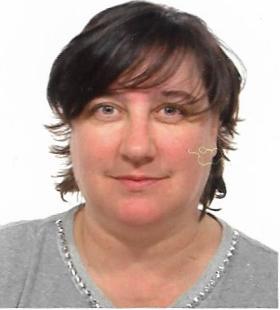Studying at the University of Verona
Here you can find information on the organisational aspects of the Programme, lecture timetables, learning activities and useful contact details for your time at the University, from enrolment to graduation.
Academic calendar
The academic calendar shows the deadlines and scheduled events that are relevant to students, teaching and technical-administrative staff of the University. Public holidays and University closures are also indicated. The academic year normally begins on 1 October each year and ends on 30 September of the following year.
Course calendar
The Academic Calendar sets out the degree programme lecture and exam timetables, as well as the relevant university closure dates..
| Period | From | To |
|---|---|---|
| 1° e 2° semestre (corsi annuali) PROFESSIONI SANITARIE | Oct 3, 2022 | Sep 30, 2023 |
| 1 SEMESTRE PROFESSIONI SANITARIE | Oct 3, 2022 | Dec 23, 2022 |
| 2 SEMESTRE PROFESSIONI SANITARIE | Jan 9, 2023 | Sep 30, 2023 |
Exam calendar
Exam dates and rounds are managed by the relevant Medicine Teaching and Student Services Unit.
To view all the exam sessions available, please use the Exam dashboard on ESSE3.
If you forgot your login details or have problems logging in, please contact the relevant IT HelpDesk, or check the login details recovery web page.
Should you have any doubts or questions, please check the Enrollment FAQs
Academic staff
 stefania.battisti@univr.it
stefania.battisti@univr.it
 chiara.cristofolini@univr.it
chiara.cristofolini@univr.it
 massimo.dibenedetto@univr.it
massimo.dibenedetto@univr.it
 maurizio.grigiante@unitn.it
maurizio.grigiante@unitn.it
 daniele.longo@apss.tn.it
daniele.longo@apss.tn.it
 rocco.micciolo@economia.unitn.it
rocco.micciolo@economia.unitn.it
 daniela.pianezzi@univr.it
daniela.pianezzi@univr.it
 francesco.torre@apss.tn.it
francesco.torre@apss.tn.it
 3455941159
3455941159
 lauraletizia.virgilio@univr.it
lauraletizia.virgilio@univr.it
Study Plan
The Study Plan includes all modules, teaching and learning activities that each student will need to undertake during their time at the University.
Please select your Study Plan based on your enrollment year.
1° Year
| Modules | Credits | TAF | SSD |
|---|
2° Year activated in the A.Y. 2023/2024
| Modules | Credits | TAF | SSD |
|---|
3° Year It will be activated in the A.Y. 2024/2025
| Modules | Credits | TAF | SSD |
|---|
| Modules | Credits | TAF | SSD |
|---|
| Modules | Credits | TAF | SSD |
|---|
| Modules | Credits | TAF | SSD |
|---|
Legend | Type of training activity (TTA)
TAF (Type of Educational Activity) All courses and activities are classified into different types of educational activities, indicated by a letter.
Engineering and prevention for health and safety in public areas - CIVIL DRAWING AND DESIGN REPRESENTATION (2023/2024)
Teaching code
4S000463
Teacher
Credits
2
Language
Italian
Scientific Disciplinary Sector (SSD)
ICAR/17 - REPRESENTATION OF ARCHITECTURE
Period
2 SEMESTRE PROFESSIONI SANITARIE dal Jan 2, 2024 al Sep 30, 2024.
Courses Single
Not Authorized
To show the organization of the course that includes this module, follow this link: Course organization
Program
TRAINING OBJECTIVES
The 'Civil Drawing and Design Representation' course teaches the main drawing codes and methods used for the representation of space on an architectural scale. The main aim of the course is to provide the student with the ability to manage project drawing by understanding its spatial, functional and technological characteristics.
The course also aims to provide the student with the basic theoretical and technical knowledge useful for describing and communicating architectural works by means of a computer tool, the Autodesk Autocad software application, which can be shared by multiple operators. The course therefore aims to lead the student towards the conscious use of the digital procedure applied both to the correct prefiguration of the architectural project and to the adequate interpretation of the work already built, configuring digital representation as a tool for knowledge, conception and communication.
At the end of the course, the student will be able to
- manage the 2D digital model and the corresponding graphic information and technical drawings;
- represent the architectural organism by applying the scientific methods of drawing, producing works in double orthogonal projections of plan, section and elevation;
- understand preliminary, final and executive project drawings;
- know the basic procedures of digital drawing;
- produce digital drawings and project boards;
- justify choices and operations by documenting all the phases of the work carried out, the problems encountered and the solutions identified.
The course includes both lectures on representation theory and digital procedures with the use of Autodesk Autocad software, and classroom discussion and work on examination assignments. The topics covered concern the following concepts
Drawing theory
Visual perception and graphic language; primary/secondary elements of graphic language; drawing tools; fundamentals of descriptive geometry, the method of double orthogonal projections and of dimensioned projections, use of horizontal and vertical sections; hints on axonometric projection; a brief outline of perspective.
Project drawing
Drawing of buildings and the environmental-territorial context; conventions and regulations at different scales of representation; project representations: plans, sections, elevations; preliminary project drawings; final project drawings; executive project drawings.
Digital drawing
Vector and raster digital models, characteristics of CAD applications, types of digital modelling; working environment, model space and paper space, file structure, coordinate systems; UCS, layers, drawing and editing tools, use and management of images; management and use of paper space, printing modes; line and screen types, blocks, text and dimensions; table layout.
The teaching programme is structured along the following lines
- Graphic study and functional/environmental analysis of an architectural project provided by the lecturer.
- Redrawing of the building, through the realisation of plans, sections and elevations.
- (Optional) Identification and treatment of an in-depth theme between: 1) functional (routes, hierarchies of spaces, services, furnishings, etc.); 2) technological-structural (types of structures, fixtures, installations, etc.).
- Elaboration of graphic boards containing the technical drawings made during the course.
CONTENTS
The course introduces the representation of architectural space at different scales. The principles of graphic representation are illustrated, as well as those of the technical drawing of artefacts, also through application examples. Students acquire basic knowledge, both methodological and operative, for the analysis and design of the inhabited area with the use of specific software.
The course includes the development of a complete application case, which provides the cues for methodological discussion and the testing of practical skills. At the participants' request, lectures and exercises may be supplemented by some meetings, on dates to be agreed upon, aimed at facilitating individual learning and solving specific practical problems.
The final exam is individual and is aimed at assessing the achievement of the training objectives and the expected learning outcomes: it consists of the oral discussion of the exercise carried out on the case study, if it is completed and handed in at the end of the course on the date scheduled. Otherwise, the final examination may include a written test in addition to the oral discussion of the exercise.
Bibliography
Didactic methods
The teaching activity develops three areas in close mutual relation: theoretical reflection, technical information and practical application. There are 20 hours, both of interactive lectures (with classroom discussion), during which the theoretical and technical content is covered; and of assisted exercises, aimed at the application verification of the topics and the development of the necessary executive skills. The final exercise is individual: explained and initiated in the classroom during course time and, where necessary, completed at home. The learning activities are multiple: classroom discussion with the lecturer; sharing of work with classmates; presentation of work by means of video projections; performance of exercises based on the case study examined in depth during the course; video tutorials and study of the texts indicated during the lectures, listed in the bibliography and uploaded onto the course's Moodle platform.
Learning assessment procedures
The examination deepens the topics covered within the course through the elaboration of 2 project boards and the discussion of what has been produced. The subject matter is presented in the final exercise section.
Evaluation criteria
The examination is individual and aims to assess the achievement of the training objectives and expected learning outcomes. 70% of the final grade depends on the exercise carried out during the course, which must be handed in within 3-4 days of the exam being called and must document the student's ability to set up, represent and solve the various study topics. 30% depends on an oral test in which the student must demonstrate both that he/she is able to justify the graphic tables and the related topics and that he/she has followed the lectures and studied their contents with adequate bibliographic coverage.
Exam language
Italiano
Career prospects
Module/Programme news
News for students
There you will find information, resources and services useful during your time at the University (Student’s exam record, your study plan on ESSE3, Distance Learning courses, university email account, office forms, administrative procedures, etc.). You can log into MyUnivr with your GIA login details: only in this way will you be able to receive notification of all the notices from your teachers and your secretariat via email and soon also via the Univr app.
Graduation
Documents
| Title | Info File |
|---|---|
|
|
pdf, it, 142 KB, 14/04/23 |
Gestione carriere
Orario Lezioni
Documents
| Title | Info File |
|---|---|
|
|
pdf, it, 509 KB, 11/04/24 |
|
|
pdf, it, 499 KB, 11/04/24 |
|
|
pdf, it, 621 KB, 11/04/24 |
|
|
pdf, it, 1453 KB, 07/02/24 |












